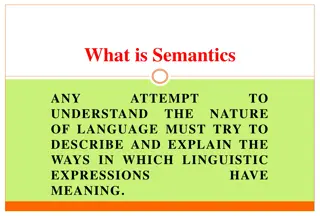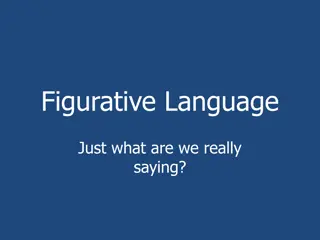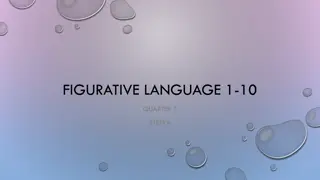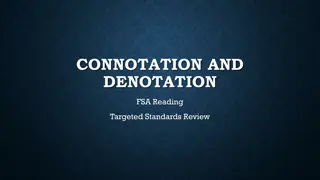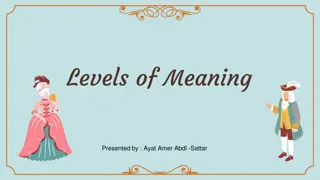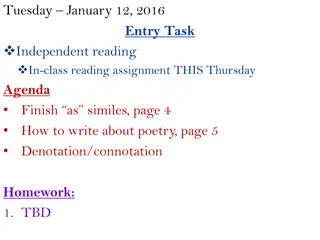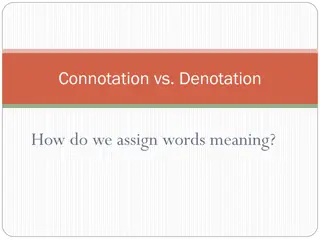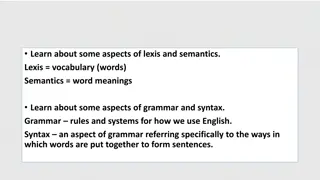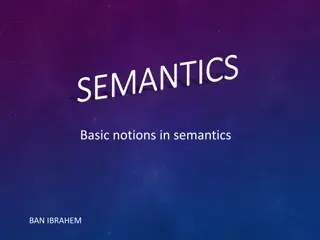
Understanding Connotation and Denotation in Words
Discover the difference between connotation and denotation in words, explore the positive and negative associations of the word "home," and learn how common connotations can vary. Engage in an interactive activity to determine the connotations of words like Spring, Delicate, and Cramped.
Download Presentation

Please find below an Image/Link to download the presentation.
The content on the website is provided AS IS for your information and personal use only. It may not be sold, licensed, or shared on other websites without obtaining consent from the author. If you encounter any issues during the download, it is possible that the publisher has removed the file from their server.
You are allowed to download the files provided on this website for personal or commercial use, subject to the condition that they are used lawfully. All files are the property of their respective owners.
The content on the website is provided AS IS for your information and personal use only. It may not be sold, licensed, or shared on other websites without obtaining consent from the author.
E N D
Presentation Transcript
Denotation The literal definition of a word. Example Home: the place where one lives permanently, especially as a member of a family or household.
Connotation The related ideas or feelings associated with a word. Can be either positive or negative. What connotations does the word home have? Are they mostly positive or negative?
Important! When you re trying to figure out what connotations a word has, try to think of what the most common connotations would be. The word summer might have negative connotations for you, but it s usually written about in a positive way in poems and stories.
Now you try! With a partner, come up a list of at least three images, feelings, or ideas for each of the following words. Then, decide whether each word has a negative or positive connotation. Spring Delicate Cramped


